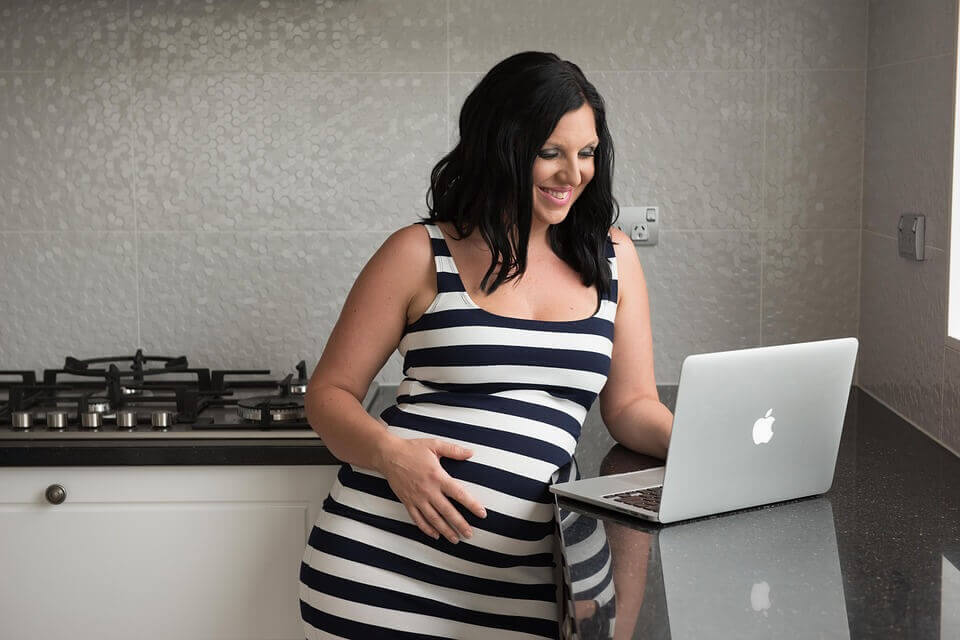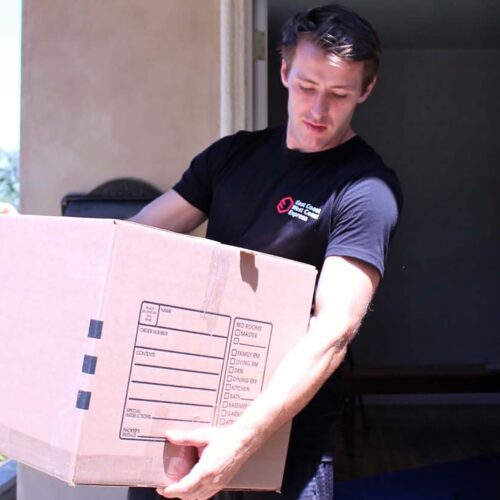

Have you ever wondered how risky some everyday activities may be during pregnancy? If you plan to relocate, then you should know that moving while pregnant is one of these potentially dangerous undertakings. However, don’t get your spirits down too soon, since there are periods during maternity when a woman can be very active and productive. If your childbearing is generally without issues, you can plan your move to a new home in search of a better location or more space to raise your child. Just keep in mind that the first trimester is not the best time for any hard labor.
With our tips, you’ll get a better idea of what you should and what you shouldn’t do during this special period in a person’s life. These step-by-step instructions can help you to recognize risky situations and listen to your body to prevent any possible stress or pain. If you follow them, you can rest assured that your relocation will be a piece of cake, and you and your unborn child will be completely safe and healthy all the way.
General Tips for Moving While Pregnant
As we said, this condition is a specific period in your life and experience unlike any other. During those nine months, your body transforms, changes, and gives you a completely new perception of yourself and the world around you. The general attitude on relocating or any type of travel during this period is somewhat more disapproving than encouraging. Nonetheless, if you are healthy and everything is as it should be, there’s no reason not to relocate.
In case you have any doubts about what to do, one is for sure – don’t listen too much to others. Listen to your body and, yes, listen to your doctor. He can confirm your doubts or just brush them off and provide you with the necessary peace of mind.
Moving During Pregnancy – Yes or No?
According to some research, women who moved during the first trimester were 42% more likely to deliver prematurely, which means before the 37-week mark. Additionally, researchers found that there is a 37% higher chance of giving birth to a child with a lower weight.
The truth is, the first trimester is the most sensitive period during gestation. A lot of women experience morning sickness, nausea, and tiredness, and many of them can be exposed to these problems for much longer periods. Also, the first three months have a higher risk of miscarriage.
What does it mean? Should you travel and move, or wait until the baby comes?
The best period during maternity actually exists. It is the middle trimester when your energy is at its peak. Even if you cannot change your address at this moment, use that inflow of strength in productive ways, such as:
- Call professional movers and book a date
- In case you want to save money and plan to relocate DIY, you can rent a truck or van
- Acquire necessary packing supplies and tips
- Start with packing or hire professional packing services
- Research about your prospective city and future neighborhood
After 37 weeks, which you enter your final months, you shouldn’t plan any overseas traveling or hard work. This is the time when most expectant mothers feel tired and uncomfortable. Being overwhelmed with stress or constant physical exertion can harm you in many ways.
 The timing is crucial
The timing is crucial
Term of Delivering a Baby Can Be Questionable
Relocating in the first trimester carries a specific risk. However, that doesn’t mean a preliminary birth of the child is inevitable since the designated birthdate might not happen precisely when expected. But, you should know that the final months carry an increased risk of preterm labor. Not only in case of a chronic disease or high-risk pregnancy, but it can occur if you’re completely healthy, too.
There are several reasons why you should avoid long-distance relocation in the third trimester. It includes an increased risk of some medical problems, such as:
- Increased blood thrombus formation because of prolonged sitting
- Exposure to infections
- Pregnancy complications or unexpected miscarriage
Your doctor would probably allow you to travel by airplane until 32 or even 34 weeks unless you’re at high risk of preterm labor. After that time, airlines don’t want to board mothers-to-be due to the possibility of an unexpected delivery on the plane.
 First and third trimesters are not suitable for relocation and long trips
First and third trimesters are not suitable for relocation and long trips
What Kind of Work and Home Tasks Should You Avoid During Pregnancy?
Let’s clear one thing – you should stay active. Sitting a lot is not healthy neither for you nor your future offspring. Although the recommended amount of activity for future mothers is 30 minutes a day, keep in mind what kind of activities you are engaged in. Especially if the relocation preparations have already started and you are in the middle of this process. Whether your pregnancy has just started or you’re in the final months, it’s all about keeping the physical effort to a minimum. But, there’s a lot of useful things you can do and avoid heavy lifting, for example:
- Deep clean of each room
- Direct to others where to put boxes or pieces of furniture
- Prepare meals or buy food for everyone
If you’re feeling too tired or exhausted, don’t do anything by yourself. You can always ask for help from family or friends when it comes to packing or loading boxes. There’s an even better solution that can give you and your partner more free time and fewer worries – hiring professional packers. They are efficient, fast, and reliable. You shouldn’t break your back to achieve everything and you can rest assured that all your valuables will be transferred intact to your next home.
 You shouldn’t make your life harder than it is right now by doing hard work
You shouldn’t make your life harder than it is right now by doing hard work
If It’s Necessary, Write as Many Notes as Possible to Remind You to Take care of Yourself
Relocation is a challenging and complicated process and requires great effort, discipline, and, above all, energy. With the baby on board, you should ask yourself for how many hours a day you should take part in the preliminary stages and steps for moving. You can participate in some easier tasks and don’t force yourself to do more than you can. This is what you should do during this time to keep yourself and your child safe:
- Rest a lot
- Have three meals and two healthy snacks
- Go outside for a breath of fresh air now and then
And that’s all right – don’t feel bad about that. You carry a life in your womb, and it has its own needs. When you’re hungry, your unborn child is too. When you’re dizzy, your body can’t provide your unborn with everything it needs. Finally, when you’re feeling miserable, that can make your baby sad, too.
Sometimes, it is difficult to put your own needs ahead of everything else, especially when your only wish is to relocate to your home as soon as possible. But you can help yourself in many ways. Set your mobile alarm at a specific time to remind you when you should eat or go out. Furthermore, you can write sticky notes and start placing them all around you. That can be useful when you forget to take folic acid or sip tea.
By following this pattern, you’ll avoid mood swings and handle the stress that can affect your baby’s development. Some studies showed that stress experienced by a woman during gravidity could have a negative influence on her unborn child.
 Don’t forget to get enough rest and eat on time
Don’t forget to get enough rest and eat on time
What’s Bad for You, Can’t Be Good for Your Baby
Moving while pregnant, generally, is not a bad idea, but it’s essential to relocate in the middle of gestation if it needs to be done. Safety should be your primary concern during the relocation period. You and your unborn child are very sensitive and vulnerable, and you are actually taking care of two people.
That means not lifting heavy things, avoiding stairs because of your center of gravity shifts as your belly grows, and wearing a seatbelt during pregnancy. Your habits and mild physical exercise should be resumed throughout nine months. It’s the best way for you to stay vital, deliver a healthy child, and enjoy your new home with the latest addition to your family.










